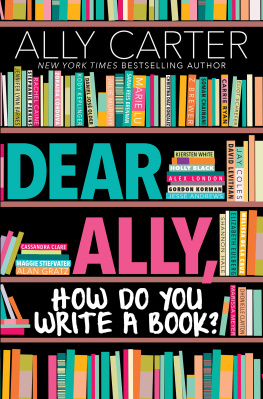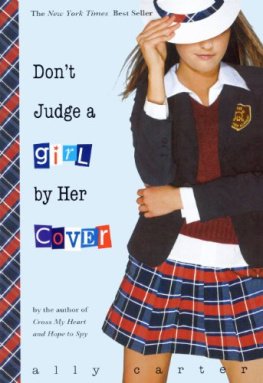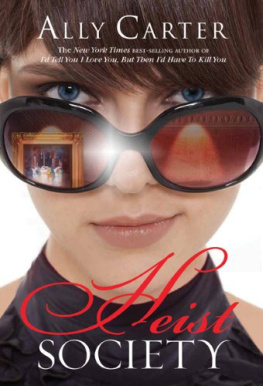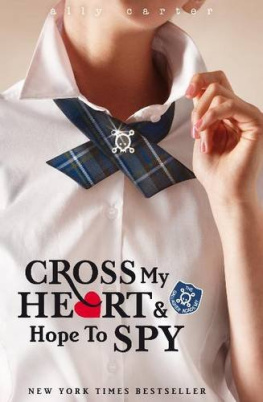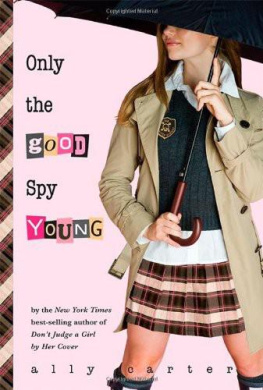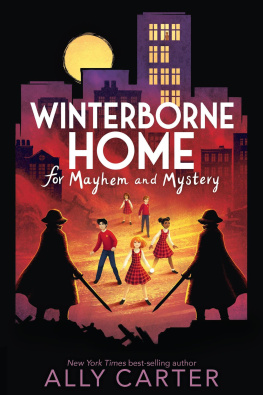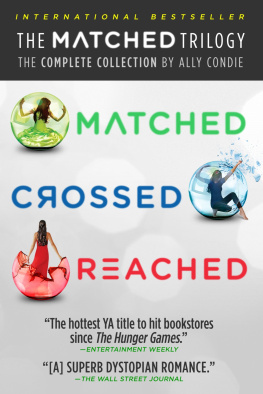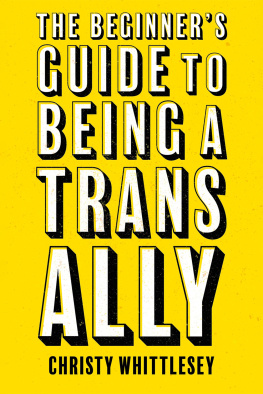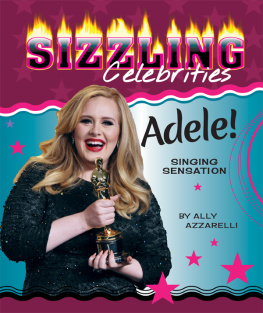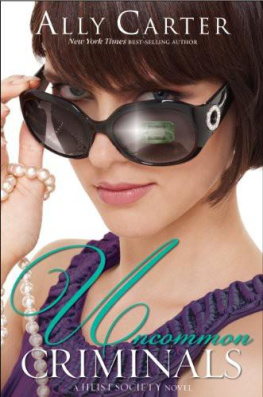

Congratulations! Youve asked the question that all writers ask themselves at some point. But do you want to know a secret? Its a question most of us never really stop asking.
Every time I sit down to write a new book, I convince myself there must be a way to do it faster, more efficiently, better ! Surely, after ten years in this business and with a total of fifteen books under my belt, I should know what Im doing by now.
But I dont, Im afraid. So I cant really tell you how to write a book. There is no single way to do it, you see.
Every author is different. Heck, every book is different. How I wrote my first book is different from the process Ill use to write my next book. Why? Because theyre different books. Because Im at a different place in my life and in my career. Lots of reasons.
Luckily, there are some things that always stay the same, and Im going to try to cover as many of the basics as I can in this bookthings like creating characters, making sure your story has enough conflict, and building a world that feels real to you and your readers.
But just know that what works for me might not work for you.
Really, theres only one thing I can say with absolute certainty: This process will take time.
A few years ago, I did the math and figured out that I spend at least nine hundred hours plotting, researching, writing, and editing every book I write.
STORYBOARDING/BREAKING THE STORY: 4 HRS/DAY FOR 20 DAYS: 80 HOURS
RESEARCHING/THINKING/BRAINSTORMING: 50 HOURS
FIRST DRAFT: 5 HRS/DAY FOR 30 DAYS: 150 HOURS
SECOND DRAFT: 5 HRS/DAY FOR 80 DAYS: 400 HOURS
LINE EDIT: 5 HRS/DAY FOR 25 DAYS: 125 HOURS
COPY EDIT: 6 HRS/DAY FOR 5 DAYS: 30 HOURS
FINAL PAGE PROOF EDIT: 8 HRS/DAY FOR 4 DAYS: 32 HOURS
CRYING: 30 HOURS
Nine hundred hours. And thats for just one book. That doesnt include all the hours I spent learning the basics.
A lot of new writersespecially writers in their teensstart out full of ideas and energy, but when they dont immediately write something perfect, they give up. They tell themselves they just cant do it. Thats certainly what I did.
I remember when I was in middle school and I got the writing bug. I sat down at our kitchen table one night to write my first novel. My mother (an English teacher) was so proud. I could see her watching me as she cooked dinner. I wrote really hard for a really long timelike ten whole minutes! And then I read what I had written and burst into tears.
Whats wrong? Mom asked as she stopped cooking.
I could barely catch my breath, I was crying so hard. Its just I started. Its not It isnt as good as the opening paragraph of To Kill a Mockingbird ! I exclaimed, and then cried some more.
Thats when my mom gave me the best writing advice that anyone has ever given me. She said, First, thats the greatest novel ever written, so maybe we lower our standards? Second, you should never compare your first draft to someone elses finished draft.
That advice is probably the only reason I was able to write a second paragraph. And a third. And a millionth.
You see, in a lot of ways, writing is like turning on a garden hose that hasnt been used in a really long time. The first water out of the hose is always rusty and dirty and full of gravel and all kinds of gross stuff. But it doesnt stay that way.
Nope. The longer the water runs, the clearer it will be. Writing is the same way.
That first paragraph that I wrote at our kitchen table was dirty water. The story that went with it was dirty water, too. So were the four screenplays I wrote in college and the six short stories I wrote after grad school and the first book I wrote, which to this day has never been published.
Even now, the first draft of every book I do is my dirty water draft, and thats okay. No one gets to the good stuff right away.
No. To get to the good stuff, you have to let the water run .
Writing takes time. It takes work. It takes putting in the hourssometimes more than a thousand of themto get the story and the characters and the words just right.
You have to put in the time, is what Im trying to say.
And that time is up to you. To find it. To use it. To make the most of it because this thingthis writing thingits optional .
Its something you do because you want to do it. Its something you do because you like to do it. It has to be something that you do for you .
Because ultimately, the answer to your questionHow do you write a book?is this:
You write a book by putting yourself in a chair and not getting up.
For approximately nine hundred hours.

Writing isnt just what I do for a living. Its what I do. Most writers are the same. Weve always dabbled or scribbled or played around with stories and words.
When I was in middle school, I started wanting to be a writer, but there werent a ton of resources available in the small library in my small town. As I got older, I came across some really amazing books about the craft and business of writingbooks like On Writing by Stephen King, Bird by Bird by Anne Lamott, and Screenplay by Syd Field (all of which I highly recommend).
I also had the opportunity to join some great organizations and online communities and attend some fantastic conferences.
Most of all, Ive been lucky enough to get to know some of the best writers in the world, and whenever two or more of us get together, inevitably we all get to talking about characters and plots and all our favorite tricks. (Not to mention the mistakes we hope we never make again.)
Which is why, whenever Im at a book festival or tour stop or school visit and someone says, Im writing my first book. Do you have any advice? I want to scream, Yes! I do! I have so much advice! but its hard to answer in a few sentences what, in a way, Ive been learning to do my whole lifewhat Im still learning to do.
When I started looking around for books to recommend to these young aspiring writers, I realized that while there are a lot of great books by adult authors, written for adult writers, there arent a lot of things written by YA authors for teen audiences.
So thats why Im doing this: to change that.

This is an interesting question. And the short answer, I suppose, is: not exactly.
Were most authors pretty good at English in school? My guess is yes. But no publisher is going to ask to see your report card before they offer you a contract. Nope. What theyre going to ask to see is your book .
Is your book good? Does it have compelling and interesting characters and a well-paced plot and a vivid world? Those are the questions that are going to matter most.
But there will be other questions, too. Like, does this person make silly grammatical mistakes? Is she so obsessed with sounding smart that she uses words she obviously doesnt understand? Is he the kind of person who is going to send out a really important letter without proofreading it first?

